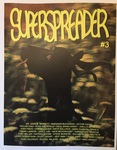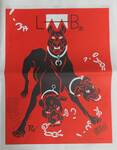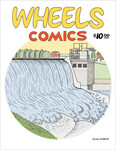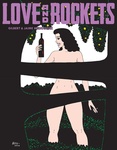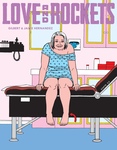
PLEASE NOTE: new, but shelf worn copies, w/ minor cover dings
Now Let Me Fly is a 322 page hardcover that presents the story of Eugene Bullard, who started out life in the Jim Crow south here in the USA at the turn of the twentieth century, and then, through a combination of striving, daring and skill crossed the Atlantic, where, when the First World War broke out, he fought in the French army before going on to become the first African American fighter pilot in history. Ronald Wimberly's story is expertly crafted with a genius framing sequence that simultaneously drives multiple points across to any attentive reader. The story that unfolds in these pages is dramatic and gripping, by turns horrifying and uplifting, and always engaging. Brahm Revel's artwork here is energetic and expressive, clear and concise – we'd say the best of his career thus far – working to both propel the story forward and carry the reader along until the very last page – this is a book that's tough to put down (you can answer those texts later)!
Wimberly and Revel mesh together seamlessly to bring Bullard's adventures and travails alive on the page. During the course of the work readers are provided with a series of up close and personal experiences, which in turn engenders the kind of "you are there" feeling that only good comics can. Here in the pages of Now Let Me Fly, there are Action and Adventure Comics that put to shame those found in the pages of the comics bearing those titles today. And, when it comes to the war, the battle sequences here are among the most direct, forceful and visceral depictions ever put to paper. This is war at human scale, revealing its full horror and giving a sense of what constitutes real bravery and daring in the face of terror. It also makes a point of demonstrating war's dehumanizing effects; the difficulty, if not outright impossibility, of mercy in battle. It should be noted that these war comics are not sanitized: there are images here that contain extremely graphic violence – which some readers may find disturbing (and which also rules out this work for the youngest readers) – yet it is also important to state that Revel's renderings wholly refrain from either fetishizing or glorifying the violence. The comics on the page are there to tell you that war is hell, indeed.
Now Let Me Fly creates a stunning portrait of both a man and an era, one which provides enlightening contrasts between the societies of The United States, Great Britain and France, and even more, is a pen and ink portrait of the flesh and blood nature of the inequality experienced by African Americans, one which, further, works to reveal the constructed and artificial character of that inequality.
FROM THE ARCHIVES
new, but shelf worn copies, w/ minor cover dings
SPECIAL PRICE!

